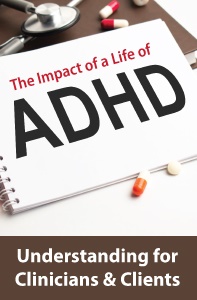SALE
$24.5
REG. $49

Related Courses

The Impact of a Life of ADHD: Understanding for Clinicians and Clients

Helping Your Young Client Persevere in the Face of Learning Differences
School Refusal Behavior: Children Who Can’t or Won’t Go to School
George B. Haarman, PsyD, LMFT
CE Credit: 4 Hours
Target Audience: Psychology CE | Counseling CE | Social Work CE | Occupational Therapy CEUs | Marriage & Family Therapy CE | School Psychology CE | Teaching CE
Learning Level: Intermediate
Course Abstract
Learning Objectives
Professional Development Resources is approved by the American Psychological Association (APA) to sponsor continuing education for psychologists; the National Board of Certified Counselors (NBCC ACEP #5590); the Association of Social Work Boards (ASWB Provider #1046, ACE Program); the American Occupational Therapy Association (AOTA Provider #3159); the Commission on Dietetic Registration (CDR Provider #PR001); the California Board of Behavioral Sciences (#PCE1625); the Florida Boards of Social Work, Mental Health Counseling and Marriage and Family Therapy (#BAP346), Psychology & School Psychology (#50-1635), Dietetics & Nutrition (#50-1635), and Occupational Therapy Practice (#34); the Illinois DPR for Social Work (#159-00531); the Ohio Counselor, Social Worker & MFT Board (#RCST100501); the South Carolina Board of Professional Counselors & MFTs (#193); and the Texas Board of Examiners of Marriage & Family Therapists (#114) and State Board of Social Worker Examiners (#5678).
This online course provides instant access to the course materials (PDF download) and CE test. The course is text-based (reading) and the CE test is open-book (you can print the test to mark your answers on it while reading the course document).
Successful completion of this course involves passing an online test (80% required, 3 chances to take) and we ask that you also complete a brief course evaluation. Click here to learn more.
Have a question? Contact us. We’re here to help!
George B. Haarman, PsyD, LMFT, is a Licensed Clinical Psychologist and a Licensed Marriage and Family Therapist currently in private practice. He received his doctorate in clinical psychology from Spalding University and is a member of the American Psychological Association. Dr. Haarman has been an instructor at Jefferson Community College, Bellarmine University, and Spalding University. He has presented seminars regionally and nationally on psychopathology, depression, and emotional disorders in children and adolescents. Dr. Haarman serves as a consultant to several school systems regarding the assessment of children. His prior experience includes working with youth detention centers, juvenile group homes, child protective services, and juvenile probation.
Disclosure:
Financial: No relevant financial relationships exist.
Nonfinancial: No relevant nonfinancial relationships exist.
Customer Reviews